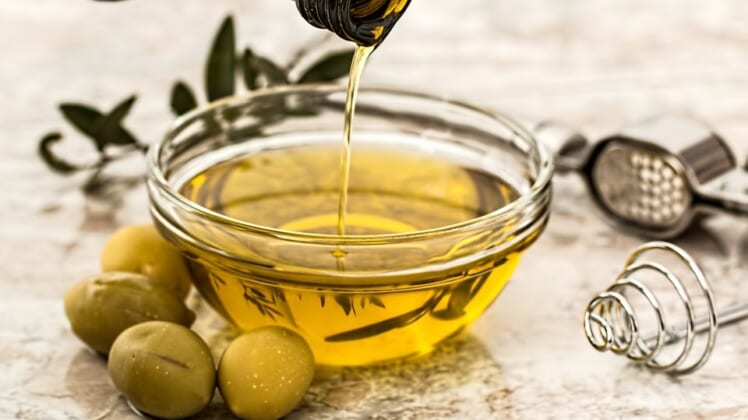
When you come to the kitchen to cook dinner every night, which cooking oils should you be using?
Food-lovers and the health-conscious have wrestled with this question over and over. Of course, the best option would enhance the flavor of food while giving you the best health benefit.
To make that choice, you’ll need to know the effect that different oils have on your body. Let’s take a closer look at some reportedly healthy cooking oils.
A Few Considerations
When looking for healthy cooking oils, experts advise that you look for one high in monounsaturated and polyunsaturated fats:
These fats stay liquid at room temperature, a feature that’s much better for your heart health than hardened saturated fats like butter. Opt out of partially hydrogenated fats and trans fats in these oils entirely.
In addition, you do want to be careful about the oil’s smoking point. If an oil has a low smoking point, keep it on low heat or use it as a topping or dressing:
Not only do oils lose many nutrients when they reach their smoking point, but they can also give off harmful compounds linked to problems like increased blood pressure and heart disease.
These reasons provide a good basis for most experts’ recommendations on healthy cooking oils.
Canola Oil
First, canola oil has a high smoking point and does not add any offsetting flavors to your food. Generally, health experts consider it healthy and safe because it contains high amounts of monounsaturated fats and very low amounts of saturated fats. In addition, it has a significant amount of omega-3s.
On the other hand, canola oil usually goes through a lot of processing, including using a hexane solvent to extract the oil. According to the Harvard School of Public Health, many oils use this process and the trace amounts of hexane left in the oil are not considered unsafe.
Another issue is that most canola plants in the US have been genetically modified. To avoid the high processing and GMOs, you can opt for organic canola oil or cold-pressed processing when possible.
Coconut Oil
Next, comes an oil that has met high controversy. The American Heart Association issued a recommendation that people stay away from coconut oil. Many people have associated the oil with good health.
Current research shows, however, that coconut oil increases bad cholesterol and actually has more saturated fat than butter—a whopping 82 percent! A mere tablespoon would meet the AHA’s total daily limit for saturated fat.
Also, although one study by Dr. St-Onge from Columbia University showed some weight-loss benefits, this research used a specially made oil packed with medium-chain triglycerides. The professor’s updated research revealed little weight loss benefit with more common coconut oils.
Avocado Oil
Moving along, one relatively new trend for healthy cooking oils is avocado oil. There is some good research behind its health benefit, suggesting that avocado oil may lower blood pressure and improve fatty acid composition in the body.
In addition, it helps people absorb other nutrients and may have anti-inflammatory effects. It also has a relatively high smoking point that cooks well under medium-high heat.
Last, avocado oil does have high amounts of monounsaturated fat. With its positive outlook under current testing, you could add this oil to your collection and gain several benefits from doing so.

The Best Diets for Feeding Your Brain
Olive Oil
Finally, you could choose olive oil as one of your main cooking oils. Experts agree that this oil has great health benefits, including anti-inflammatory effects and high amounts of heart-healthy monounsaturated fats.
One study published in the journal Pharmacological Research found that people who used olive oil had better cholesterol levels, lower blood pressure, and a decreased risk for heart disease. It may also reduce the risk of depression, cancer, and even Alzheimer’s disease. Overall, olive oil will have great effects on your health and should be a favorable choice for your everyday cooking.
For the best health benefit, you should choose a cooking oil that suits your taste and protects your health. You could even switch between the best types of oil to gain a wide range of nutrients. The main thing is to stick with monounsaturated fats and take care not to smoke the oil.


